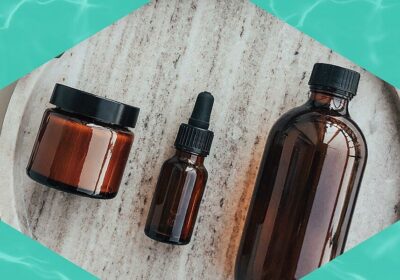Is Cold-Pressed Skincare Worth the Hype?

It used to be that when you saw the term "cold-pressed," it was safe to assume the topic of conversation was high-quality juice. However, nowadays, the vitamin and nutrient-preserving technique has made its way over to skincare.
But are cold-pressed skincare ingredients legit? And are they better than other types of ingredients? To find out, we chatted with five dermatologists.
What Is Cold-Pressed Skincare?
According to board-certified dermatologist and medical director of Pacific Skin and Cosmetic Dermatology, Tracy Evans, MD, the term "cold-pressed" indicates a technique of extracting ingredients without using high amounts of heat.
But why does the temperature of extraction matter? "It can denature or break down key vitamins, nutrients, and key fats in oils," she explains, noting that, in theory, cold-pressed skincare ingredients are more potent and ultimately more effective than their heated counterparts.
Most often, cold-pressed skincare ingredients refer to oils. That's because, according to board-certified dermatologist Marisa Garshick, MD: "Cold-pressing helps to preserve key fatty acids, like omega 6, omega 9, and antioxidant benefits." She recommends Nécessaire's 100% Cold Pressed Body Oil ($35, sephora.com) and Tatcha's Gold Camellia Beauty Oil ($98, tatcha.com).
What Are the Benefits of Cold-Pressed Skincare Ingredients?
It all comes down to potency. "Research shows that cold-pressed ingredients retain more antioxidants, therefore products using this method are effective in delivering beneficial skincare results," explains board-certified cosmetic dermatologist Michele Green, MD.
As for specific results, Dr. Garshick says that the cold-pressed extraction technique helps ingredients retain their full benefits — "which in the case of many oils is to moisturize, protect, and soothe the skin," she explains, adding that she likes Herbivore's Botanicals Emerald 100mg CBD Deep Moisture Glow Oil ($58, sephora.com), which uses cold-pressed hemp seed oil. "By helping to preserve the antioxidant benefits, it helps to provide protection against free radical damage."
Are Cold-Pressed Skincare Ingredients Worth the Hype?
While many dermatologists applaud its efficacy, board-certified dermatologist Anthony Rossi, MD, says that the ingredients and products that they're used in shouldn't necessarily be held on a pedestal.
"Cold-pressed juice may be your go-to, but the benefits that we see from using hydraulic force to extract juice out of fruits and vegetables may not translate to skincare — you're not eating it," he says. Additionally, he points out that other quality skincare ingredients aren't achieved by 'flash frying' them.
That said, Dr. Rossi admits that some ingredients need to be heated. "In order to make ingredients soluble or dissolve into one another is that you have to heat certain particles up," he explains. "Certain peptides and retinols that are in powder form will need to be liquid in an aqueous (aka water) base."
Additionally, even if an oil goes through the beneficial cold-pressed extraction process, Dr. Rossi says that they may still encounter heat that can diminish their vitamin and nutrient content.
"Think of the shipping of these products," he says. "They will go through climates that are quite hot — regardless of cold-pressing. Cold-pressed juice needs to be refrigerated and used within a few days, but cold-pressed skincare still has preservatives in the products and are not shipped in cold containers."
VIDEO: Don't Panic, TikTok — Here's the Truth About Using DMDM Hydantoin and Formaldehyde in Hair
So, What’s the Final Verdict on Cold-Pressed Skincare?
With this in mind, Dr. Rossi believes that the nature of cold-pressed skincare is more about trendy buzzwords than actual complexion benefits. "As a dermatologist, it's important for me to guide people on what is a fad and what really makes a difference," he concludes.
Another way to look at it is by comparing it to clean and green beauty. Much like those categories, board-certified dermatologist Dendy Engelman, MD points out that cold-pressing methods aren't FDA-regulated, so it isn't a 100% guarantee that the products will work as they claim.
At the end of the day, though, it all boils down to preference. So if they work for you, then they work for you.
From non-toxic makeup and skincare to sustainability practices, Clean Slate is an exploration of all things in the green beauty space.
Source: Read Full Article